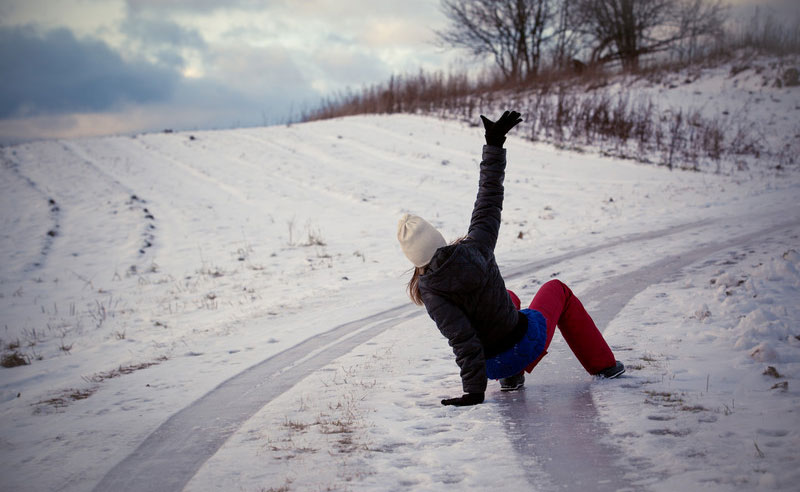Winter is a great time of year and everyone is busy planning parties and holidays. But the season also comes with higher risks of personal injuries. In fact, personal injury lawyers issue warnings about various types of accidents that can occur due to inclement weather conditions, most of which are preventable. Handling personal injury cases is a complex task that requires compassion and dedication. As attorneys focus on winning their case, they usually rely on legal transcription services to document audio and video recordings of summaries, depositions, case notes, statements, police reports, correspondence, and much more.

In winter, personal injury lawyers handle a higher number of claims for different kinds of cold-weather related injuries. These include:
- Head injury/ traumatic brain injury
- Back and neck injury
- Spinal cord injury
- Shoulder injury
- Fractures
- Cuts and lacerations
- Soft tissue injuries
- Burns
Let’s look at the various types of winter accidents and mishaps that lead to these injuries as well as tips to prevent them.
- Slip and fall accidents: Covered with slush and snow, parking lots, streets and sidewalks become slippery in winter, increasing the risk of slip and fall accidents. Winter fall-related injuries include fractures and broken bones as well as serious injuries, like spinal cord injuries and brain injuries. Businesses have a duty to clear ice and snow and salt ice from their roads and premises to prevent slip and fall accidents on their property. Individuals need to keep their sidewalks shoveled and iced, wear proper footwear, and walk carefully when outdoors. When you arrive at any place, check the ground for ice before you step out of the car. If an area of your property is especially prone to ice formation, put up (colored) signs to warn others of the danger.
- Motor vehicle accidents: Driving on snowy and icy roads can be risky. According to the National Highway Traffic Safety Administration and the Auto Insurance Center, from 2011 to 2015, about 800 Americans died each year in car crashes caused by snow, freezing rain, sleet or ice. The main reasons for traffic crashes on wet and wintery roads are night driving, poor visibility, driving under the influence of alcohol. Here are some tips to prevent winter weather road accidents:
- Stay off the road if you can
- Winterproof your vehicle
- Allow extra time to get to your destination and drive slowly
- Avoid tailgating
- Keep the lights on even in the daytime
- Drive in a lower gear
- Never mix alcohol and driving – have a designated driver
- Pedestrians need to wear reflective clothing so that drivers can see them
- Space heater accidents: In many homes, space heaters provide the much-needed warmth in winter. But if improperly used, space heaters can turn deadly. According to National Fire Protection Association, space heaters are responsible for 80 percent of all winter heating fire deaths and more than 70 percent of all winter injuries. The main reasons for space heater accidents are improper placement of the heater and not turning the heater off before going to bed. Safe practices include:
- Buying a heater that has been tested and certified by a nationally recognized testing laboratory
- Choosing a heater with a guard around the flame area or the heating element
- Buying a heater that is the right size for the area to be heated.
- Teaching all family members how to use a space heater properly
- Turning off the space heater when you go to sleep or leave the area
- Indoor and outdoor fires: Building indoor and outdoor fires is common in winter, but you need to ensure that it is done right. For a fireplace, make sure to set up a screen to guard against flying sparks and prevent the carpet from catching fire. When at a campsite, ensure that fires are permitted there. Build the outdoor fire pit at a safe distance from buildings, trees or bushes.
- Pipe freeze and burst: Make sure there are no water leaks or dripping inside or outside your home. Freezing pipes can burst and harm you, your property, and anyone who comes onto your property. When Water freezes, it expands, and after a certain point, this expansion causes the pipe to burst. Here are some recommendations to prevent from the Insurance Institute for Business & Home Safety to prevent pipe freeze and burst in winter:
- Place water pipes only in heated spaces
- Protect pipes in attics, crawl spaces and vulnerable outside walls with insulation or heat
- Use heating cables and tapes for freeze protection
- Leave doors on cabinets under kitchen and bathroom sinks open during cold spells to allow the warmer air of the room to circulate around the pipes
- Exterior pipes should be drained or enclosed in 2-inch fiberglass insulation sleeves
- Shut off and drain pipes leading to the exterior at the start of the winter
- Remove and store hoses indoors during the winter.
Winter time job responsibilities can result in specific types of injuries, especially when outdoor work is involved. That’s why winter also sees an increase in workers compensation injury claims and a rise in demand for workers compensation transcription services. Overexposure to the cold when working outdoors can cause frostbite. Malfunctioning heating equipment or a lack of warm areas can expose employees to risks of hypothermia. Back injuries can occur when working in slippery conditions.
Attorneys need dedicated video and audio transcription services for accurate transcription of legal proceedings related to personal injury and workers compensation lawsuits. The support of experienced legal transcriptionists can minimize the workload of attorneys and help them focus on their main tasks more efficiently.



